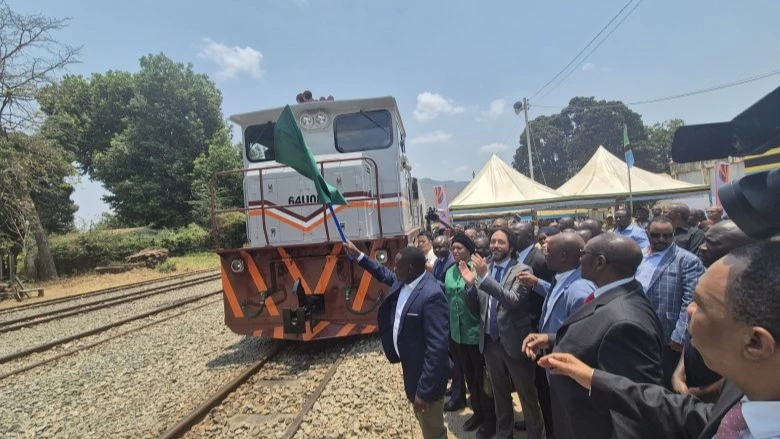WFP enables TRC to set up refrigerated wagons facility

REFRIGERATED wagons will now be used in bulk transportation of vegetables, meat and fruits on the traditional central railway line.
David Kihenzile, the Transport deputy minister, made this affirmation at the launch of the special cargo handling initiative handled by the Tanzania Railways Corporation (TRC), with funding from the World Food Programme (WFP).
Ronald Tran Ba Huy, the WFP country representative, recalled that two years ago the UN agency launched a milestone initiative in partnership with TRC for what is known as the structured rail cold chain project.
“Initially focused on horticultural products, the project aims to connect key production areas in Dodoma and Morogoro regions along the central railway line with major retailers and processors in Dar es Salaam and Dodoma.
It also seeks to facilitate export through port and airport facilities in Dar es Salaam, he said, highlighting that to date, WFP has invested $0.53m in the project, covering a joint WFP/TRC assessment and a feasibility study.
It has also enabled the procurement of eight refrigerated 40-foot containers, 5,040 plastic crates, 200 pallets and 16 heavy-lift equipment pieces for project operations, all of which have been handed over to TRC, he stated.
The refrigerated containers are compatible with both the meter gauge railway and the standard gauge railway (SGR), providing flexibility in operations, with this investment additional to technical support WFP provides to TRC.
“This important step is part of the government's strategy to increase cargo transport by enhancing railway business,” the chief guest said in his remarks, noting that farmers, livestock keepers plus those engaged in horticulture will able to take advantage of this facility to widen business activity.
Ease of transportation will foster ability to meet domestic and international market demands, he said, asking those engaged in produce transportation to take up the offer, as this is vital for the sustainability of this programme.
He aired the that efforts need to be made to ensure that cold chain operations on TRC wagons remains sustainable, hinting concerns on this issue at the cabinet level, with specific instructions by Dr Doto Biteko, as deputy prime minister.
The aim is to elevate transportation sector reliability for horticulture and other perishables in local and regional markets and even beyond, he emphasised.
Prof. Godius Kahyarara, the Transport permanent secretary, said that work on the project follows years of awareness of extensive post-harvest losses for perishable goods, even if they have some accessible markets, owing to poor storage practices.
Research shows that six million tonnes of vegetables are marketed annually but this is only a part of what is produced, he said, while Masanja Kadogosa, the TRC director general was optimistic on the new arrangements.
He said TRC starts with eight refrigerated wagons, with charges significantly reduced to allow more transporters to take up the service offer.
Shaka Hamdu Shaka, the Kilosa district commissioner, said the programme would help boost the economy for local residents and elsewhere in the region.
Residents Zena Said and Nasoro Ally praised the government's initiative, expressing the feeling that it provides an opportunity for farmers to expect more efficient access to markets.
Top Headlines
© 2024 IPPMEDIA.COM. ALL RIGHTS RESERVED






















